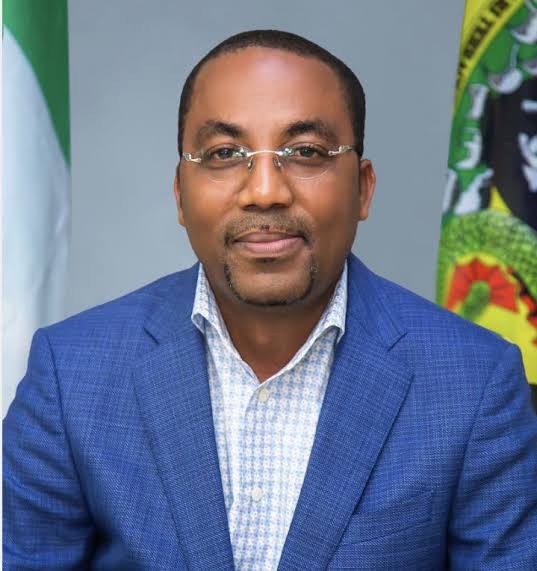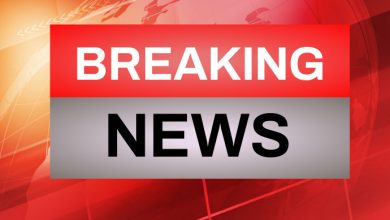Koko-Bello And The NPA Stakeholders

The recent appointment of former Executive Director, Finance and Administration, Nigerian Ports Authority (NPA), Mohammed Bala-Koko, as acting MD, did not come as a surprise to some operators and stakeholders in the industry. For a majority of them, the change of baton was long expected, so long it comes with improvements in some of the authority’s affairs.
The different stakeholders in the sector, ranging from government and its various agencies, the haulers, licensed agents, investors, employees, deckhands and crews and other maritime industry operators, have one major consideration: how the effect of the new leadership and the modifications or reforms that will come with it, will shape and impact their interests.
For short, every segment of the maritime community looks up to the leadership of the NPA under the newly appointed MD, for policy directions and the likely effects on the economy. To the government, increased earnings; for investors, a business environment that enhances return on investment and to the public, policies that guarantee best global practices, security, and effective ports management.
A major area of concern to stakeholders is the issue of security. It is the single most dreaded problem in the country. And just like any other system that desires stability and growth, the NPA leadership must put in place a secure maritime environment as the fulfilment of their constitutional mandate. The maritime sector is the second largest revenue earner for Nigeria and the Sea Ports. Thus, being the collection center, it must be kept safe and secured as a matter of national interest and to ensure steady national growth and development.
The safety of vessels, cargoes and crews on the waters have direct impacts on the overall economy since the maritime sector is critical to national income. Failure to secure these stakeholders, the country would not be able to optimise the ports and discharge its obligations, both to the citizenry and other external stakeholders.
The amount of receivable annual revenues lost to insecurity in the maritime sector is better imagined. For instance, the few thriving businesses in our maritime corridors were said to have been forced to spend larger fractions of their annual profits on the provision of security.
Exposed!! Popular Abuja doctor revealed how men can naturally and permanently cure poor erection, quick ejaculation, small and shameful manhood without side effects. Even if you are hypertensive or diabetic . Stop the use of hard drugs for sex!! It kills!
Another issue the stakeholders feel the new management under Bello-Koko should put on the front burner is the full implementation of the truck e-call up system recently deployed as part of measures to control the perennial traffic gridlock in and around the ports corridor.
With the recent deployment of the Etos platform, an app designed to facilitate electronic truck call-up system and manage truck movement in and out of the Lagos Ports Complex and the Tin Can Island Ports, Apapa, Lagos, Bello-Koko is expected to perfect the operations of the system to serve the purpose of gridlock minimisation pending the completion of the several multi-billion-naira road projects along the port corridors.
Despite huge allocations for the reconstruction of the roads leading to the country’s seaports, all the roads are in deplorable conditions. Therefore, Bello-Koko would only worm his way to the hearts of the stakeholders by ensuring that the road projects are properly executed. Not only that, all the roads around the ports’ corridors must be perfected to the specification according to the terms of their contract. The over N4bn reported daily loss by investors and operators due to traffic gridlocks could be salvaged with good road network around the ports.
Another issue that is of interest to stakeholders is the issue of port congestion. Government and stakeholders are losing billions on revenue, when containers are left to overstay in the ports. In fact, the creation of the Lilypond Tincan 11 container terminal, a dry port with the capacity to handle about 15, 000 containers, to serve as relief for the tin can main port had only a little or no effect on the decongestion drive of the various administrations. Hence, licensed clearing agents have seized every forum to lament their ordeal under arbitrary charges of the private terminal operators. If this issue is urgently addressed now, then, it would the Bello-Koko leadership
The new administration is also expected to reconsider the issue of cargo diversion. A process whereby cargo vessels carrying goods meant for the Nigerian ports are shipped in disguise to the neighbouring Benin Republic for onward smuggling into the country, through inland borders, thereby resulting in the loss of billions of naira as untapped revenue.
The NPA under Koko is expected to take steps towards activating the Cabotage Act, which provides for a secure/reserved 70 per cent investment holdings for local investors in vessels plying the Nigerian territorial waters.
An industry expert and National President Association of Nigerian Licensed Customs Agent, Mr Iju Tony Nwabunike, said recently that the Cabotage trade laws, if adequately implemented, could solve Nigeria’s rising debt crisis. To this end, he posited that the NPA must work out effective collaborations with other relevant institutions such as the Nigerian Content Development and Management Board (NCDMB), to encourage and ensure the protection of Nigerian investors in the maritime industry.
The government as a major stakeholder, for instance, is interested in the security of the waterways; the territorial water boundaries, the purpose of which the Nigerian Maritime Security Agency (NIMASA) was created to ensure the security of the ports through the NPA and other allied government agencies.
Other stakeholders like the Association of Nigerian Licensed Customs Agents (ANLCA), Ship Owners Association, Maritime Employees, warehouse, and terminal operators among others, also look up to the new NPA management under Bello-Koko for answers to some of their age-long requests and expectations.
Effective collaboration with allied agencies for sure would help grow the larger economy through the encouragement of Nigerian Content Compliance by operators and service providers in the maritime industry. This will be in terms of increased cumulative spending, employment creation and sources of local goods, service and materials utilised on projects and operations to encourage local participation.
NPA staff are looking forward to no less condition of work, hence mechanisms must be put in place to ensure an adequately motivated workforce. The management-employee relationship must be nurtured to create an environment conducive for his workers. Good enough, the new MD oversaw staff welfare as the ED Finance and Administration.
Actions capable of bringing about industrial action must be avoided, because of the consequences of strike action by staff, even if only for a day. So, salaries and other allowances must be given the top priority. Bello-Koko must ensure that retirees’ interests are well protected. The former staff once dragged the NPA to court, winning from lower to the Supreme Court. Any faceoff with current and old member of staff should be avoided with its attendant distractions.
*Ugo wrote from Port Harcourt, Rivers State




